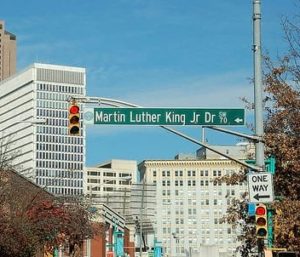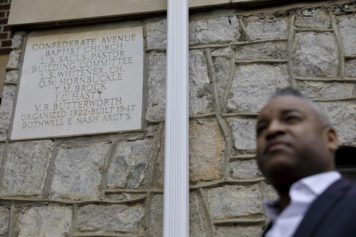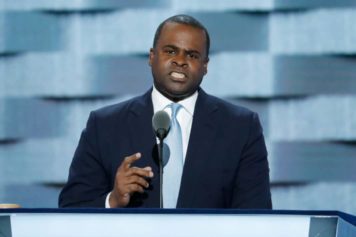
Image courtesy of Curbed.com
Atlanta’s historic Martin Luther King Jr. Drive is getting a long-awaited facelift after the city received a $10 million federal grant to improve safety, mobility and aesthetic appeal along the corridor.
According to the Atlanta Journal-Constitution, Atlanta was the only city in Georgia to receive the highly coveted award through the Transportation Investment Generating Economic Recovery grant program. U.S. Transportation Secretary Anthony Foxx announced earlier this week that $500 million would be allocated for transportation projects across the country in the eighth round of the competitive program.
This is the third grant the City of Atlanta has received through TIGER, the newspaper reports.
“I am pleased to announce that the City of Atlanta has received $10 million in funding from the 2016 TIGER grants to support the Martin Luther King, Jr. Drive Corridor Innovation Project,” said Atlanta Mayor Kasim Reed. “With this major grant, the City is able to make significant progress toward completing this vital project. As the birthplace of Dr. King, the street bearing his name should and will be one of the most attractive and important streets in our city.”
A news release from the City of Atlanta detailed future improvements to the seven-mile corridor, which include synchronized traffic lights, new sidewalks and a multi-use trail with new landscaping, historic signage, street furniture, upgraded crosswalks, and distinctive paving with ADA ramps among other things. The renovations will increase access to public transit, employment centers, and other services along the length of MLK Jr. Drive. This way, residents who live in and around the corridor are provided with new, affordable mobility options that connect them to schools, rail stations, trails, bus routes and more, the release states.
The Atlanta City Council passed legislation earlier this year to begin paving along the historic road. Per the AJC, the TIGER grant will cover about half of the $22.9 million project. The transportation recovery program has pumped roughly $75 million into Atlanta since its launch in 2009.
“This unique program rewards innovative thinking and collaborative solutions to difficult and sometimes dangerous transportation problems,” Foxx said. “A great TIGER program doesn’t just improve transportation; it expands economic opportunity and transforms a community.”
Despite the generous allowance from TIGER, city councilman C.T. Martin said the MLK project is still about $38 million short.
“Beautifying MLK has to have three prongs: economic development, housing and public safety,” said Martin. “This helps, but we are trying to put together a $50 million package.”
According to the city councilman, Atlanta’s economic development arm, Invest Atlanta, has supplied $2 million toward renovating the long-neglected corridor. Other cities across the country who have streets bearing Martin Luther King Jr.’s name have taken similar steps to revamp the areas around these roads, which are more likely to be poor and run-down.
For example, a St. Louis organization called Beloved Streets of America is working with architects and urban developers to devise a new plan for revitalization, FastCoExist.com reports. Founder Melvin White, who is also a postal worker, said he was inspired to renovate MLK Street in St. Louis after witnessing the refurbishment of a street nearby.
“Just by going a mile away, I happened to look at the sign and say, ‘Wow,’ ” White said. “What is this? Why is MLK Street in the condition it’s in? I saw prostitution, I saw abandoned buildings. I just really took a look at it, the way that it was. Why is Martin Luther King Street like this? This was a great man, a hero, and why is he being recognized in this light?”
University of North Texas student Eric Katzenberger also studied a number of U.S. streets named after Martin Luther King Jr. and found that the majority of them are located in predominately African-American neighborhoods. The residents in these communities typically have average lower incomes compared to residents in other communities with the same percentage of Black residents, the UNT website states.
“These empirical patterns represent a puzzle in need of further investigation concerning the mechanisms by which city managers, mayors and city councils make decisions about the names of roads and, in particular, the local political dynamics and roles of naming decisions within a broader, political-economic context,” Katzenberger said.

